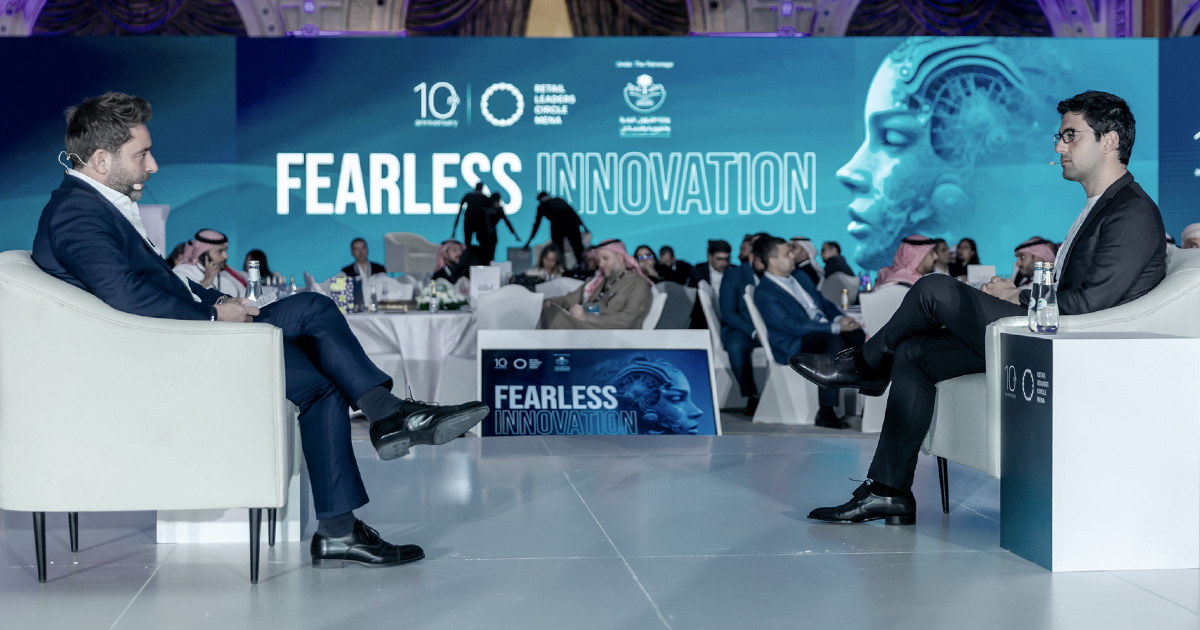Charbel Sarkis, Director of Saudi Arabia and MENA Retail at Google, delved into the transformative impact of Artificial Intelligence (AI) on retail and shopping experiences. Highlighting advancements in AI technology, he showcased how AI is revolutionizing consumer interactions and the broader retail landscape.
In the age of AI, the retail sector is undergoing a profound transformation, revolutionizing both consumer shopping experiences and business operations. The rapid advancements in AI technology, exemplified by developments in multimodal language models, have significantly enhanced the capacity to understand and interact with various forms of data, including video, text, and images. This progression in AI is likened to the pivotal moment experienced with the introduction of smartphones, marking a new era of accessibility and integration of technology into daily life. GenAI made AI accessible to consumers, to ‘have a conversation with the technology’ through interfaces like Gemini, ChatGPT and others, and thus to appreciate the transformative power that the technology has to offer.
The surge in interest towards AI within the retail industry is evident, with an observable increase in search queries reflecting a growing curiosity and eagerness to explore AI solutions. This shift towards an AI-first approach signifies a broader commitment to leveraging technology not just for enhancing consumer experiences but also for addressing global challenges such as traffic management, disease detection, and environmental conservation.
AI’s impact on retail extends to transforming shopping experiences from static and reactive interactions to dynamic, predictive, and contextual engagements. Innovations in search capabilities, enabled by generative AI, are reimagining the search process to be more conversational and adept at handling complex queries, thereby making the shopping journey faster, richer, and more intuitive. Furthermore, the introduction of features like Google’s “Circle to Search” enables a seamless and frictionless shopping experience, allowing consumers to easily explore and purchase items of interest directly from their mobile devices.
Beyond improving the consumer interface, AI technologies offer significant advantages for retailers in enhancing the entire value chain. From generating actionable insights from vast datasets to revolutionizing marketing with AI-driven creative tools, AI facilitates targeted and efficient consumer engagement. Additionally, AI enhances product discovery and customer service on digital platforms, replicating the personalized assistance of in-store shopping experiences online.
The transformative potential of AI in retail is vast, encompassing operational efficiencies, customer experience enhancement, and the creation of new, innovative shopping paradigms. As the sector continues to embrace AI, early adoption and experimentation with these technologies offer retailers a competitive edge, positioning them at the forefront of a rapidly evolving digital landscape. The example of Chalhoub Group, as Michael Chalhoub, President Strategy, Growth, Innovation & Investment and Joint Ventures at Chalhoub Group illustrated, shows a proactive stance towards this technological evolution, highlighting the importance of integrating the right tools, foundational training, and legal frameworks that ensure efficient and responsible AI utilization.
At the heart of adopting AI within retail is the emphasis on setting the right data and privacy foundations, ensuring that the workforce is adept at leveraging AI within defined legal and ethical boundaries. The journey towards effective AI utilization encompasses several stages, starting with the essential acquisition of clean and voluminous data, followed by thorough analysis, and culminating in the strategic application of insights derived from AI technologies.
One transformative application of AI in retail is in inventory and supply chain optimization. Predictive analytics facilitated by AI is enabling retailers like Chalhoub Group to forecast demand more accurately, leading to a more sustainable and cost-effective business model. Furthermore, AI’s influence extends to marketing and customer service, where it enhances consumer interactions through personalized recommendations and conversational commerce, thereby enriching the customer experience.
Innovation in retail, propelled by AI, is not confined to operational improvements but also encompasses the exploration of new business models and customer engagement strategies. From fashion shows with interactive AI features to virtual fitting rooms combining virtual reality and AI, the potential for creating immersive and personalized shopping experiences is vast.
Promoting an AI-centric mindset within organizations transcends technological adoption; it requires cultivating a culture that encourages experimentation and innovation. Initiatives like appointing innovation ambassadors and providing targeted training programs underscore the commitment to embedding AI deeply within the organizational fabric. Partner collaborations as the one between Google and Chalhoub Group play a crucial role in this transformation, offering training, tools, and benchmarks that facilitate the exploration of cutting-edge AI solutions while ensuring alignment with corporate values and customer expectations.
As the retail sector continues to navigate the age of AI, the collaborative efforts between industry leaders and technological partners are pivotal in harnessing AI’s full potential to revolutionize customer experiences, drive sustainability, and foster a culture of continuous innovation and growth.
 We’ve been having all that customer data, but we haven’t managed to predict demand well enough. And right now, we’re at a stage where we’re able to predict demand, which helps us build a more sustainable business model.
We’ve been having all that customer data, but we haven’t managed to predict demand well enough. And right now, we’re at a stage where we’re able to predict demand, which helps us build a more sustainable business model. 





